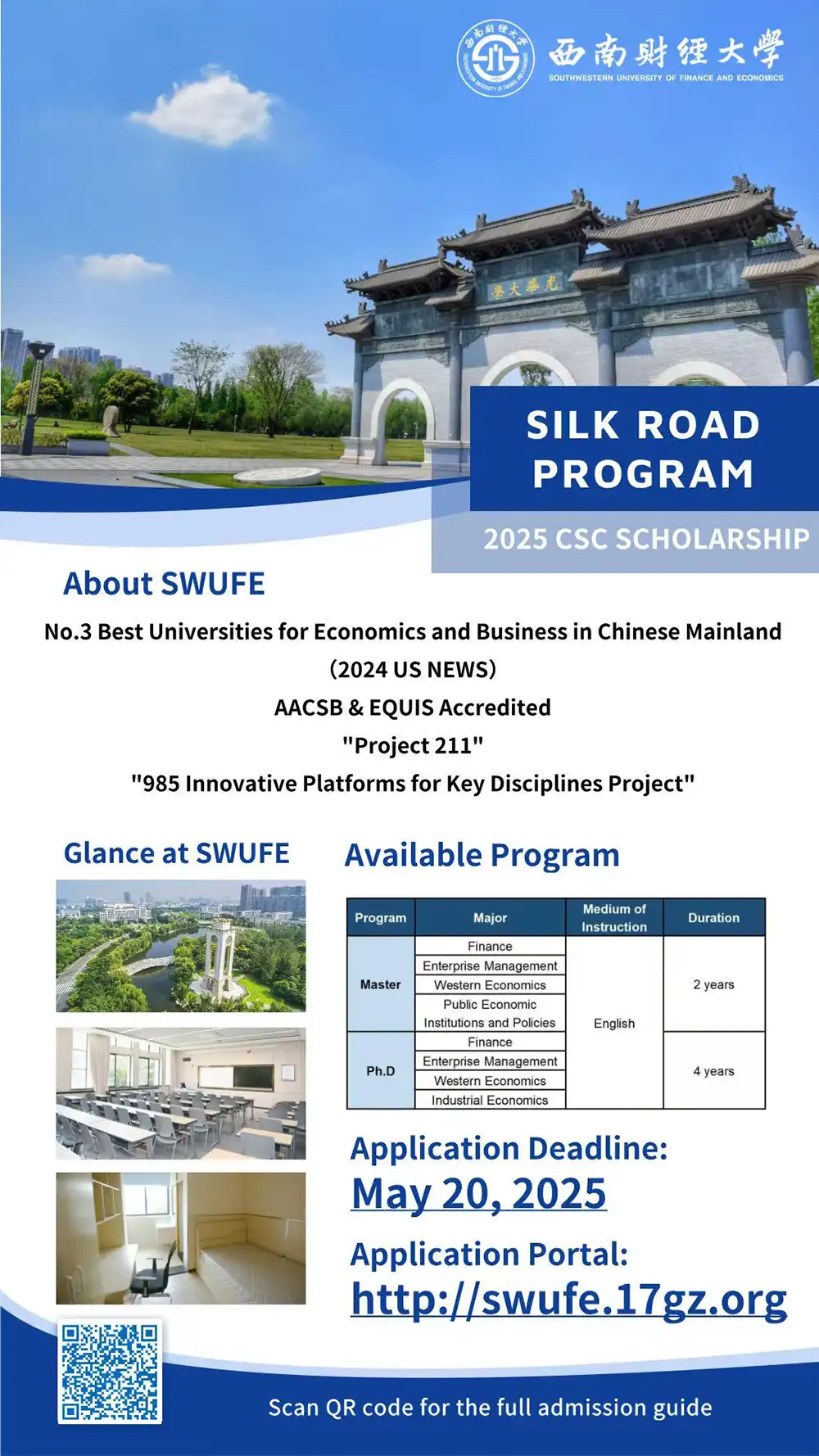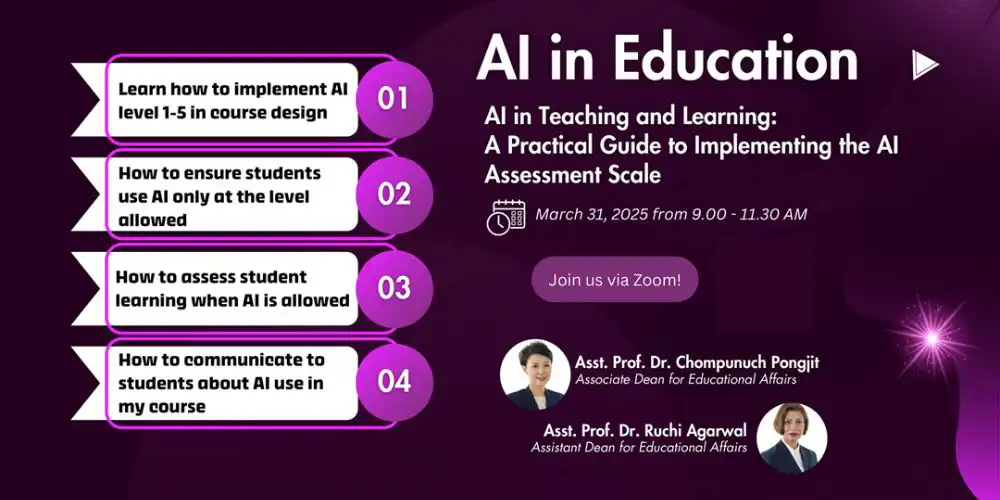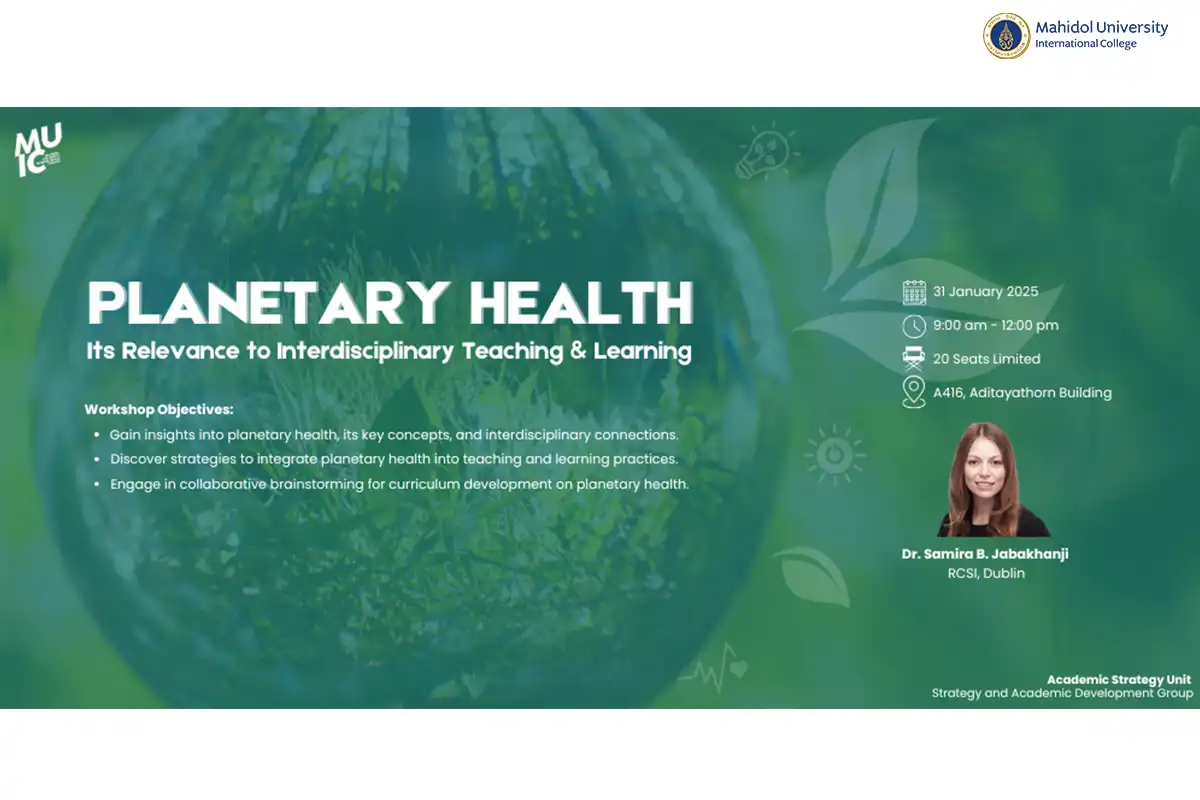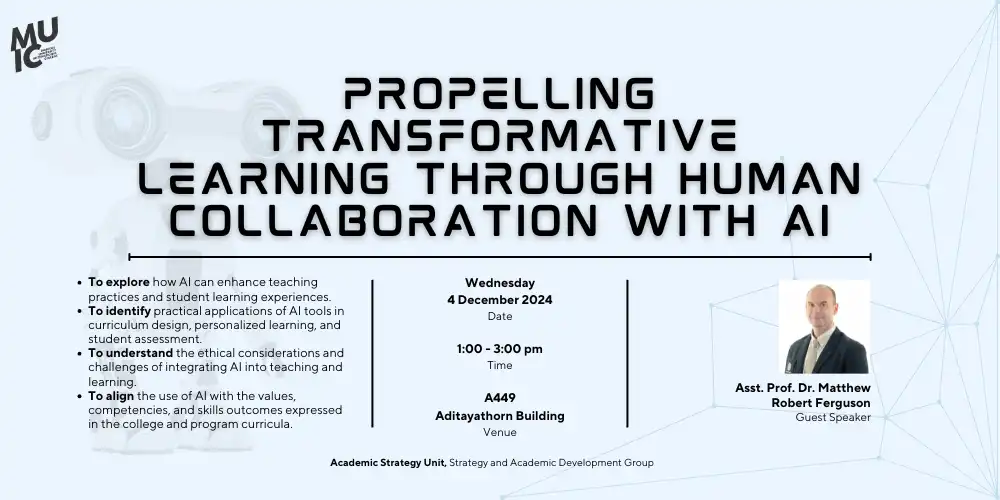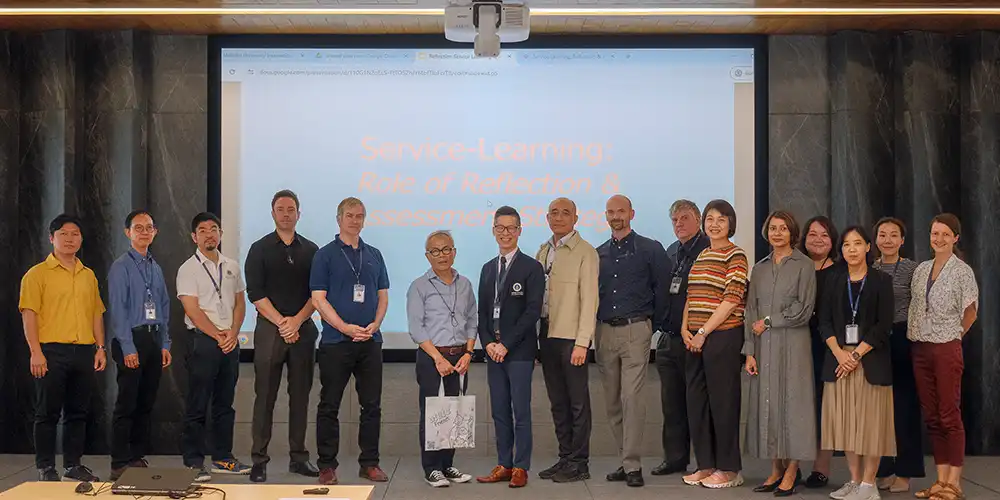Workshop 6: Online Course Design and Analysis
January 31, 2020 2020-01-31 4:28Workshop 6: Online Course Design and Analysis
Workshop 6
Online Course Design and Analysis
January 31, 2020 1:00 – 4:00 pm
3rd Floor, Charinyarasmi, Aditayatorn Building
Guest Speaker: Assoc. Prof. Dr. Yingyot Chiaravutthi and Asst. Prof. Dr.Ornlatcha Sivarak
Strategy and Academic Development section under the Office of Academic Affairs recently hosted its 6th Workshop entitled on ‘Online Course Design and Analysis’. The workshop was led by Assoc. Prof. Dr. Yingyot Chiaravutthi, Associate Dean for Finance and Human Resources and Asst. Prof. Dr. Ornlatcha Sivarak, a faculty member from Business Administration Division. The purpose of this workshop was to facilitate online course design and development to further enhance student’s learning experience for the 21st century and transforming knowledge for the benefit of society.
The very first step in developing an online course required choosing a particular course and content and adapting them to the online format. The chosen course had to be any course currently taught but preference was given to courses listed in the new MUIC curriculum to be launched in September 2020.
The requirements in choosing the courses or contents for online development included the following:
- It should come from lecturer’s own discipline.
- The chosen content could be just one topic from the entire course.
- The topic should be interesting and the content should not come from textbook.
- It should be different.
Next step was to develop an outline for online course proposal since this would help the lecturers to get initial ideas of how their online course would look like. While filling in the proposal, the course outline was structured through series of topics linked to elaborate the details of the course. Apart from general information, proposal form also consists of several topics such as learning outcomes, resources reference, guideline for developing online tutorials, and course assessment. The more details the form requires lecturers to answer, the better they will understand the nature of their online course and this will lead to a better management of the course. Lecturers need to have a clearer idea of who their potential learners are which allows them to choose the write title and contents for the course which would be interesting to the different groups of learners. The course can also attract more people if it doesn’t require learner to have prior knowledge.
The next in developing the online course was to envision how their online course will be delivered. This may start by breaking down the course’s learning outcomes into sub-goals and adding elements or activities that will make the course more attractive. The materials such as infographic, film, docudrama or quizzes could also be added to expand learner’s learning experience to different setting. Lecturers also need to master the platform to assist learners when they’re facing the technical problems.
Furthermore, given the important of proper pacing in online-personalized learning, every element such as video script, voice-over, storyboard, content, and learning activities must be accurately planned and should be clear enough for the understanding of the variety of learners. As learners control their own learning pace, it is important to pause at crucial moments between discrete elements, which is similar to paragraph break in written language, to let them digest the information as much as possible.
Lastly, feedback from learner is equally important when it comes to course development. This allows lecturers to learn about what elements of online courses aren’t working for their learners. Lecturers need to know when their instructions system is the only thing standing between learners and their fullest potential, so that adjustments can be made in delivery of the contents to have an improved learning environment.
While online learning is an invaluable opportunity for everyone who wants to move quick in the digital age, there are numerous factors that come into play when developing one. One of crucial factor is the challenge of pertaining to lecturer role in different setting. However, as quality education and class objectivity shouldn’t be determined by whether it is on-site or online, a realistic support from institution to facilitate quality production are indeed as important as training faculty to create quality online course and to be prepared for coming challenges. Lecturers are also needed to work with one another to thrive through the transition from traditional classroom (brick) to online classroom (click). Besides, the course itself must be carefully planned and prepared. Internal and external factors must be monitored and adjusted at all time. Lecturers must ascertain that the involvement of students is encouraged since the more direct involvement students have, the more invested and productive they will be.




